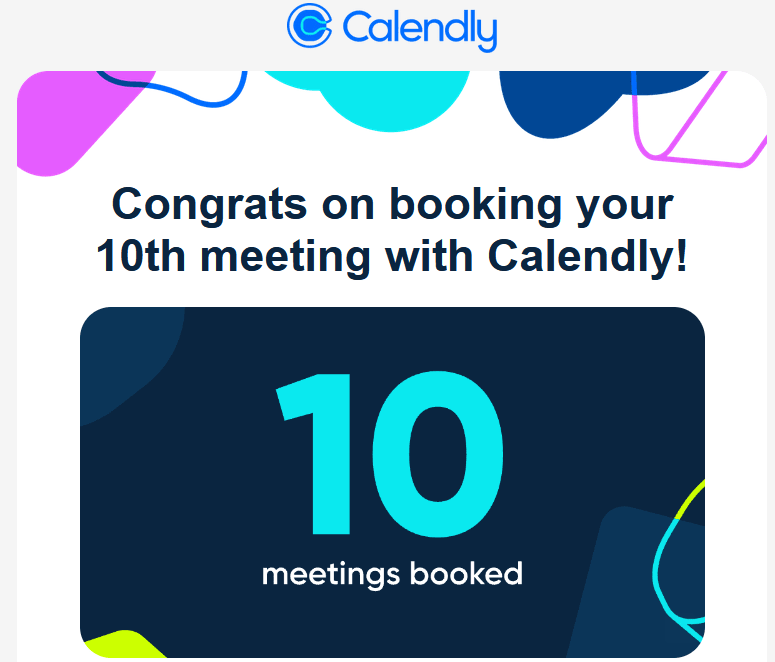Patrick Liu
Participation4
- Completed the AGI Safety Fundamentals Virtual Program
- Attended an EAGx conference
- Attended more than three meetings with a local EA group
- Attended an EA Global conference
Posts 10
Comments37
Celebrating your users - this just popped into my inbox celebrating my double digit meetings using the Calendly tool. It highlights a great practice of understanding your users' journey and celebrating the key moments that matter. Onboarding and offboarding are key moments, but so are points that can transition them to a power user. From forum stalker to contributor. This allows me to reflect on how good an experience I've had that I keep using this tool (make sure it is good), and as a next step suggests tips on how I can use the tool more pervasively to get more embedded in the ecosystem. So think about how you can celebrate your users when community building.

A plea to EAG Boston presenter...
Some presentations stick with you after EAG. Some evaporate as you leave the room. While there is a lot of amazing content at EAG, I'd like to seem more consideration on how to deliver a message that sticks. From my experience presenting to the firing squad, here are some tricks of the trade -
1) Figure out who is your primary audience you are speaking to. If you try to cover everyone, you will usually lose everyone.
2) Narrow down to the one message you want them to walk away with.
3) Consider tying your main message to a Call to Action.
4) For an hour slot, consider the 10/20/30 rule.
10 slides - less is more;
20 minute talk (+ 20 minutes to fix the internet, A/V gear, etc + 20 minute buffer for audience interjections);
30 pt font - less is more;
5) Max 7 bullets per slide
6) DO NOT read the slide
7) Be authentic, for your audience to buy your message they need to buy into you
If you prefer to hear it from an ex-Apple evangelist saying it more charmingly: https://www.youtube.com/watch?v=51TLge2peLc
Hi Peter,
In Famine, Affluence, and Morality, you put forth a position that it should not matter if we help the child who is a neighbor or the child ten thousand miles away. Is this a strongly held conclusion or a position you want people to continue to debate?
You mentioned you were fortunate enough that Princeton allows you to teach one semester a year and so you have 8 months to spend with your grandkids. One could argue there are many more children in Trenton, NJ that would benefit from your mentorship. This is where I disagree with consequentialism. I believe we should care a lot about the people close to us and collectively we can make sure everyone is cared for.
Thanks for your hard work!
On the automation of wisdom -
Norman Douglas:
“There are some things you can’t learn from others. You have to pass through the fire.”
Unfortunately there were some technical difficulties with the Zoom link. Thanks for those who found the new room. Also keep the conversation going on our slack channel - https://join.slack.com/share/enQtNzAyMjc2MTYzNTUyMS01NTg3MmVjODc3ZDk4ZTlkNzg3ZmMyNmE0NTc3ZjdjMWJiMWI0ODliOTJkYTYyOWNmNDhkZWU5NGIyMTVhYWEw (expires in 14 days).
I'm getting an error from the zoom link. Please use this room instead: https://meet.google.com/avh-vdvw-wub
Meta question - I volunteer with EA Data Science so this content is useful to me. How does subscribing to a tag work exactly? It seems like it just make posts more likely to appear on my frontpage or is there a more reliable way to check for updates? I could just keep checking the tag or try wrestling with some RSS feed or similar, but I'd like to know if there is a more native way of getting updates.

A short while ago, there was a contest on the forum to write about the difference between Knowledge and Wisdom. Of course it's been done before! This is a quick video sharing one perspective -